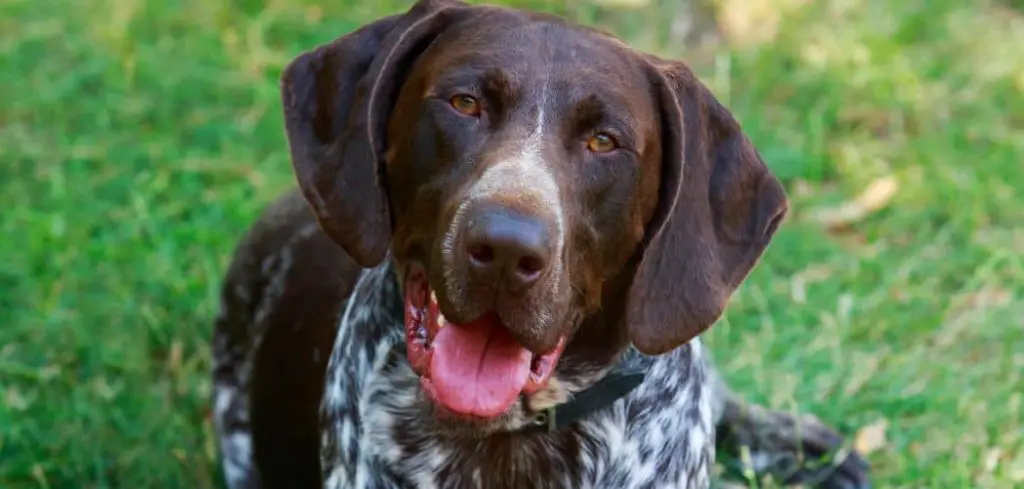When your dog is panting heavily without physical exertion or heat exposure, stress could be the underlying reason.
Stress-induced panting can be unsettling for owners, as it often appears suddenly and may indicate emotional or physical discomfort.
We outline the common reasons why dog panting due to stress happens, what you can do at home, and when to seek veterinary help.
Dog Panting Due to Stress — Why It Happens
Dog panting due to stress happens because stress causes physiological changes that can trigger rapid breathing and excessive panting. When a dog experiences anxiety, fear, or excitement, the body releases hormones like adrenaline and cortisol. These hormones stimulate the cardiovascular and respiratory systems, increasing breathing rate and causing panting.
Triggers such as loud noises, travel, separation anxiety, vet visits, or changes in routine can all set off this stress response. Also, stress can aggravate underlying medical conditions, making panting even more pronounced.

Dog Panting Due to Stress: Common Causes
Separation Anxiety
Dogs with separation anxiety often pant heavily when their owners prepare to leave or are gone. This panting is part of a larger stress response that may include pacing, whining, destructive chewing, or attempts to escape.
Panting may start before you leave the house, triggered by cues like grabbing your keys, and can continue until your return.
Chronic separation anxiety requires behavioral training and sometimes medical intervention to keep your dog comfortable and healthy.
Read more: Dog panting and not eating (Should you worry?)
Loud Noises and Fireworks
Noise-sensitive dogs may pant excessively during thunderstorms, fireworks displays, or other loud events. The sharp sounds and vibrations can cause intense fear.
Alongside panting, dogs might tremble, hide, bark, or seek constant reassurance from their owners.
Over time, repeated noise triggers can make panting a conditioned stress response even to minor sounds.
Travel and Motion Stress
Car rides, flights, or other forms of travel can cause stress-related panting in dogs. The movement, unfamiliar smells, and confinement create both physical and emotional discomfort.
Even dogs without motion sickness may pant from anxiety alone, often combined with drooling, whining, or restlessness.
Frequent travel stress can be reduced with gradual desensitization and, if needed, calming aids prescribed by your vet.
Visits to the Vet or Groomer
Trips to the vet or groomer are common panting triggers. Unfamiliar handling, scents, and sounds can raise stress levels quickly.
Dogs may pant during the journey, in the waiting area, or throughout the appointment. Some dogs even start panting as soon as they realize where they’re going.
Training for positive association with these visits can significantly reduce stress-induced panting.
Meeting New People or Animals
Socially sensitive or shy dogs may pant when meeting strangers or other animals. This can occur at home, in parks, or during walks.
The panting is often paired with body language signs like tucked tails, ears back, or avoiding eye contact.
Repeated exposure without positive experiences can increase long-term anxiety and make panting more frequent.
Stress Worsening an Underlying Condition
Sometimes, stress does not directly cause panting but makes it worse in dogs with conditions such as heart disease, respiratory issues, or obesity.
For example, a dog with mild breathing difficulties may pant excessively when stressed, even in comfortable temperatures.
In these cases, addressing both the medical condition and the stress trigger is essential.
What to Do If Your Dog Is Panting Due to Stress
First, identify and remove the stressor if possible. If it’s temporary, like a passing thunderstorm, create a safe and quiet space for your dog with familiar bedding and toys.
Stay calm yourself, as dogs often mirror their owner’s emotional state. Speaking softly and moving slowly can help your dog relax.
Offer comfort but avoid reinforcing fearful behavior with excessive fuss. Instead, focus on redirecting attention with gentle play or treats if your dog is willing.
For recurring triggers, like travel or vet visits, gradual desensitization training paired with positive reinforcement can reduce anxiety over time.
If stress panting happens frequently or lasts long after the trigger is gone, consult your vet about calming supplements, pheromone diffusers, or prescription anti-anxiety medication.
When to Call or Visit Your Vet
Contact your vet if panting is persistent, extreme, or accompanied by other symptoms like lethargy, collapse, or refusal to eat.
Seek immediate care if your dog has trouble breathing, a bluish tongue, or collapses while panting.
If panting occurs without an obvious stress trigger, it may be a sign of a medical condition rather than stress alone.
Frequent stress-induced panting also warrants a veterinary visit to ensure no underlying health problems are contributing.
Read more: Dog Diarrhea Due To Stress (Here’s why)
Key Takeaway
Dog panting due to stress occurs when emotional triggers activate the body’s natural “fight or flight” response, increasing breathing rate. Common causes include separation anxiety, loud noises, travel, vet visits, meeting strangers, and stress worsening existing conditions.
While occasional stress panting may resolve with comfort and calm, frequent or severe episodes should be evaluated by a veterinarian.
By recognizing triggers, offering reassurance, and using long-term anxiety management strategies, you can help your dog feel safer, calmer, and more relaxed in stressful situations.
